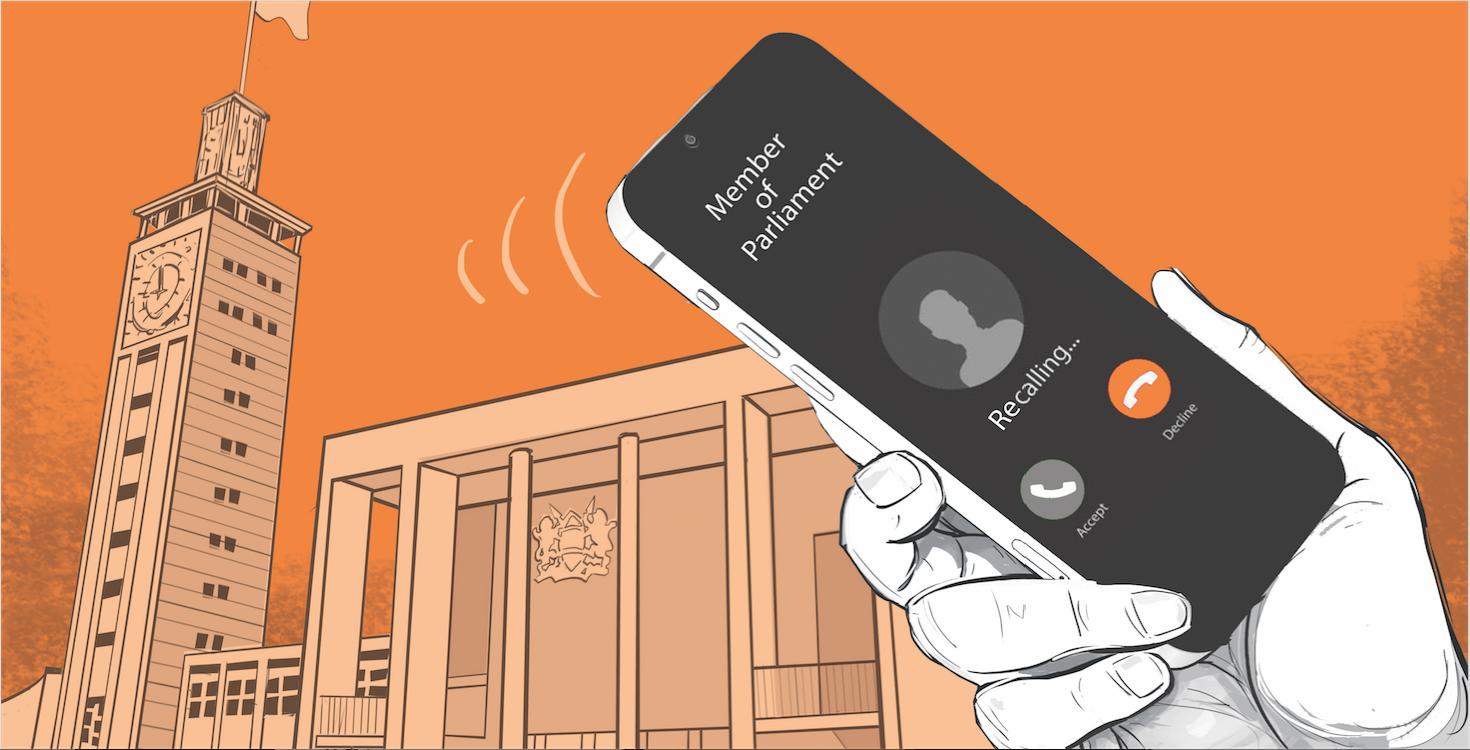

The Constitution of Kenya, 2010, in
Article 1 boldly declares that "all sovereign power belongs to the people...".
Article 104 brings this to life by giving citizens the right to recall their member of Parliament before the end of their term. This is not symbolic; it was
intended as a constitutional check on poor leadership between elections.
Today, however, that right is
effectively suspended. What was meant to strengthen accountability has become a
legal illusion, neutralised by political inaction and institutional failure.
The paralysis began with the 2017
High Court ruling in Katiba Institute v. Attorney General. The court
declared Sections 45–48 of the Elections Act unconstitutional. First, it found
the requirement for recall petitions to start in the High Court unfair—too
costly and complex for ordinary citizens. Second, it ruled that limiting who
could initiate petitions restricted the political rights the Constitution
sought to protect.
Instead of reforming the law
comprehensively, Parliament took a narrow and self-serving approach. It only
amended recall provisions for members of county assemblies. Senators and
MPs were conveniently excluded. This created a troubling double standard:
county leaders remain accountable to voters through recall; national
legislators are shielded.
Meanwhile, the Independent Electoral
and Boundaries Commission, despite its constitutional mandate, cannot
act. Without a statutory framework, the IEBC is legally barred from processing
recall petitions against MPs and senators. Even when thousands of signatures
are gathered in protest – citing neglect, misconduct or betrayal of public
trust – the commission’s hands are tied.
This legal gap is not a technical
oversight; it’s a political strategy. It enables MPs and senators to evade
direct accountability. It weakens representative democracy by rendering public
dissatisfaction toothless. It tells citizens that once leaders are elected,
they are above the people they serve.
Public frustration is mounting. Across the country, there is growing anger over the perceived arrogance, impunity and unresponsiveness of some elected leaders. From urban constituencies to rural counties, Kenyans are increasingly demanding the right to recall those who have abandoned their mandate or lost touch with their constituents.
Recent protests and public discourse, particularly among the
youth, highlight a renewed push for mechanisms that allow citizens to correct
the political course between elections. The recall process, if operationalised,
would serve as a vital tool for real-time democratic accountability.
Seven years have passed since the
court’s ruling, yet Parliament has failed to enact a new law. This delay
reflects not oversight but reluctance. It reveals a political class more
invested in survival than in constitutional fidelity. The absence of a working
recall mechanism shows a legislature unwilling to be subject to the same
scrutiny it demands from others.
Kenya’s lawmakers must now act
decisively. Parliament should pass a revised Elections (Amendment) Bill
that fully operationalises Article 104 in accordance with constitutional and
judicial guidance. The law must eliminate the High Court barrier and create an
accessible, citizen-led process administered either by the IEBC or an
independent electoral tribunal.
To protect against abuse, the
process can include reasonable safeguards. For example, requiring support from
at least 30 per cent of registered voters across a majority of the constituency’s wards
would ensure only serious, broadly supported petitions proceed.
This reform is not optional; it is
constitutionally required. It is also essential for democratic legitimacy.
Without it, the promise of accountable governance remains hollow. The right to
recall must be more than ink on paper—it must be a working mechanism of the
people’s power.
The constitution did not envision
rulers; it envisioned public servants: accountable, removable and responsive.
Reinstating the recall process is the only way to honour that vision.
Parliament
must now decide: defend the constitution or continue to defy it.
Fredrick Okango is a public policy expert and commentator on governance and democratic accountability in Kenya.












